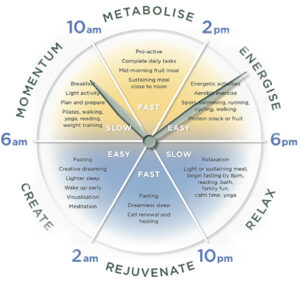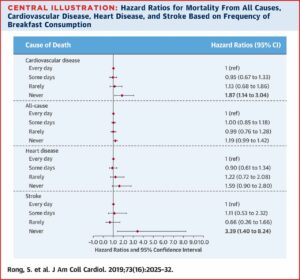
I have been trying out something different over the last three months that have shown some modest results. I have modified my eating to be more habitual than impulsive with my morning breakfast routine. I ran across an article in an old Forbes magazine while sitting in Kwik Lube's lobby, waiting for them to finish up my oil change. The article, "When Is the Best Time to Eat Breakfast, According to A Dietician" by Noma Nazish made a lot of sense to me.
"Missing your morning meal confuses your hunger hormones, setting you up to overeat later on in the day. A lot of people feel ravenous before bedtime just because they haven't eaten enough earlier in the day, and their body is trying to make up for it," says Kim Larson, Seattle-based dietitian, nutritionist, and founder of Total Health. I definitely fell in this bucket of people.
Skipping breakfast can lead to various health problems, including stress, fatigue, and increased susceptibility to obesity and diabetes. A recent study in the American Journal of American College of Cardiology, “Association of Skipping Breakfast With Cardiovascular and All-Cause Mortality” by Shuang Rong, Linda G. Snetselaar, Guifeng Xu, Yangbo Sun, Buyun Liu, Robert B. Wallace, and Wei Bao, 6,550 adults between 40 and 75 years old participated in a health and nutrition study between 1988 and 1994 concludes that skipping breakfast was associated with a significantly increased risk of mortality from cardiovascular disease. With 17 to 23 years of follow-up, the study provides supporting data that skipping breakfast can be associated with a significantly increased risk of mortality from cardiovascular disease – see Figure 1. The study supports the benefits of eating breakfast in promoting cardiovascular health.

Figure 1: Hazard ratios for mortality from all causes
According to a survey completed by the Food Insight organization, over 90% of Americans agree that breakfast is the most important meal of the day; however, only 44% eat breakfast every day. Up to 3 months ago, I fell in the 44% category. I have consistently had a glass of water with 10 mins of getting out of bed; however, adding a boiled egg and a Quaker oats packet of instant oatmeal with honey before leaving the house seems to have, at a minimum, helped with reducing the morning fog that my 8 am coffee would clear.
Since consistently adding breakfast to my daily routine, I have noticed that I have a ton more energy during the day. By the time I am back home from the office, I am ready for dinner (around 7 pm). I eat dinner and am done with food until breakfast the next day. This is a new norm for me since I would get home and forage throughout the evening (popcorn, chips, fruit, etc.).
Now it's only a glass of water around 9 pm-ish and in bed by 11 pm. I am attributing this lifestyle change to consistently having morning breakfast.
This is my current guide for eating times that may be a helpful rule of thumb.
- Eat within 30 minutes of waking up. - Ideal time for me to have breakfast is 5:30 am.
- The ideal time for me to have lunch is 12 pm.
- The ideal time for me to have dinner is by .7 pm.
Again, this schedule is working for me. You may have a schedule that is better for your situation. The overarching message is the by-product of not having morning breakfast can lead to very problematic health outcomes up to and including death.
Enjoy the information, take action, and choose a quality life.